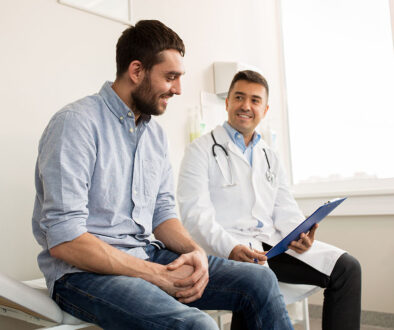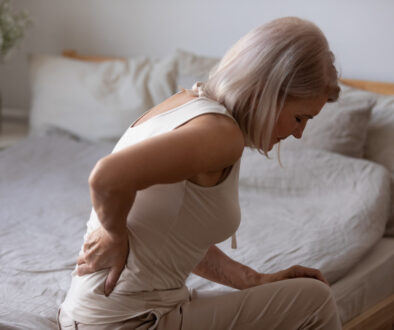Tips for a Healthier, Safer Summer (Part Two)
Vacation should be a time of relaxation and enjoyment—not illness. Whether you are traveling across the world, across the country, or across the state, taking a few simple precautions can help ensure your vacation is spent doing what you enjoy most instead of waiting in a doctor’s office. Check out our vacation health tips to see how you can minimize sickness this summer!
Vaccinations
Regardless of where your vacation takes you, be sure that you and members of your family are up-to-date on all routine vaccinations. These include measles / mumps/ rubella, varicella and seasonal flu. Your physician is your best source of information on what vaccinations are needed and are appropriate. If traveling abroad, remember that certain countries may require yellow fever vaccinations.
Avoid Traveler’s Diarrhea
Those traveling to developing countries have a higher risk of developing traveler’s diarrhea, especially if extra precautions are not taken with food and drink. In addition to avoiding tap water or undercooked meat, travelers should avoid food from street vendors and wild game “bush” meat. Unpasteurized milk and fountain drinks should also be avoided. A handy infographic on food and beverage safety for international travelers can be found by clicking here.
Motion Sickness
The nausea of motion sickness can provide a rough start to any vacation, whether traveling by car, train, or plane. Motion sickness occurs when the motion you see is different from the motion your body senses from signals sent to the brain from the inner ear. Sometimes, where you sit can help alleviate motion sickness; however, medication may be needed. Because many motion sickness medications can cause excessive drowsiness, speak to your doctor about what type of medication may be right for you.
Avoid Bug Bites—Particularly From Mosquitos
Ticks, bedbugs, and other unwanted parasites can not only be a nuisance during a hike or camping excursion, but they can also carry diseases. Mosquitoes in particular carry diseases like yellow fever, West Nile Virus, and malaria. Be sure to wear bug repellant that is strong enough to ward off these unwelcome visitors; usually, this means a repellant that contains DEET.
Research Your Destination
Check the Centers for Disease Control’s Travel Notices for information on contagious disease outbreaks, particularly if traveling abroad.
Don’t Forget Your Medication
It’s fine to relax and take a break from your day-to-day routine over the summer . . . except when it comes to taking your medication! Be sure to pack your medication and bring a list of all the medications you are taking so they can be provided to health care workers in the case of an emergency.
Cruise Ship Health Tips
Be aware that outbreaks of norovirus, chickenpox, and other diseases can occur on cruise ships. These ships are particularly vulnerable not only because so many people are in one area, but also because many crew members and passengers come from countries where certain infectious diseases are more common. The best way to avoid these illnesses remains one of the simplest: wash your hands frequently and thoroughly with soap and water. It’s especially important to wash after touching surfaces that others have touched, such as railings and doorknobs. An alcohol-based hand sanitizer with at least 60 percent alcohol should be used if soap and water are not available. Many cruise liners have hand sanitizer dispensers placed throughout the ship. You may wish to speak with your physician about getting a flu shot for added protection.
Swim Only in Designated Areas and Obey All Posted Signs
This is not just to protect against drowning or rip currents; certain microbes can penetrate your skin through open cuts or abrasions. These microbes can lead to infections such as schistosomiasis (a disease caused by parasitic worms) and leptospirosis (a bacterial disease that can lead to kidney damage or meningitis). Avoid swimming in cloudy water, and even avoid fresh water in some locations. Do not swallow the water and do not swim if you have scratches or breaks in your skin; these wounds provide an open door to bacteria.
Finally, if you are sick when you return home, do not hesitate to visit your doctor. In some cases, getting immediate medical attention can not only keep a disease from becoming more serious, but it can also help you get back to work and into your regular daily routine with minimal interruption.




